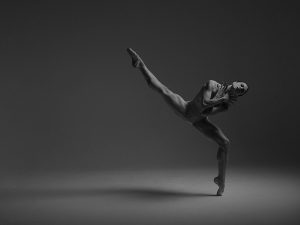
Shelby Williams
This is the second article that Shelby Williams (Biscuit Ballerina) has written exclusively for Counselling for Dancers. She talks about healthier social media use for dancers.
A good friend of mine called social media “a thief of time”, which is very apt.
Read Shelby’s previous article here
For someone who has gained such a following on Instagram, I’m pretty anti-Instagram, or at least anti-the-way-most-people-use-Instagram. Don’t get me wrong. There are things that Instagram is fantastic for. As an expat who has changed countries multiple times, I value how much it allows me to have a peek into the daily lives of so many people I care about. I have also seen how, when used as a visual portfolio of one’s work, it has been able to open doors to incredible work opportunities for colleagues of mine thanks to the exposure not otherwise possible within their real-life network.
I think it is also wonderful that through social media, people living in cities which are not necessarily cultural hubs can still follow the Instagram accounts of dance companies in order to see clips of the current work being performed around the world. In many ways, Instagram helps dancers gain an awareness of what dance is or can be on a global scale.
Negative impact
But then comes the part of Instagram that I don’t like: the negative impact it has on mental health. A report put out by the Royal Society for Public Health in the United Kingdom found that Instagram was the social media platform most detrimental to young people’s mental health, but Snapchat, Facebook, and Twitter were all associated with high levels of anxiety, depression, bullying, and FOMO as well (https://www.rsph.org.uk/uploads/assets/uploaded/62be270a-a55f-4719-ad668c2ec7a74c2a.pdf).
There are many truths behind healthier social media which most people know, but forget to take into account, like that what you see online is not the reality and that social media is curated. Just as you wouldn’t submit that unflattering photo of relevé in second position with an audition application if it wasn’t required, you wouldn’t post any unflattering content on your Instagram if you don’t have to.
Many dancers trim their performance footage down to just their best moments, redo countless takes of a pirouette video until they get one that appears effortless, and some even go as far as to photoshop their images. It’s no wonder we can be left feeling inadequate when we compare ourselves to someone else’s pseudo reality.
Negativity of comparing
The global reach of social media also allows us to compare ourselves to people who most likely will never cross our paths in real life. Competition within a school or company is stressful enough when we’re also forced to dance side by side in front of a mirror. Now with the help of social media, we can compare ourselves to that competition winner on the other side of the country, or that up and coming principal dancer on the opposite side of the world who happens to be our same age. Boy do I feel like an underachiever! But they have no direct connection to you or your life. They are miles away and the dance world is large and diverse. They will find their place and your will find yours. Don’t waist your energy sweating over a dancer you may or may never come into contact with.
Healthier Social Media rationing
So, what now? You can recognize that social media is affecting your self-esteem, but you don’t want to completely get rid of it and lose the good that can come from it. Maybe it’s time to change how you use Instagram and other platforms. Start by limiting yourself to 30 minutes a day. A study at the University of Pennsylvania found that students who limited their time on social media to 30 minutes per day experienced significantly less feelings of loneliness and depression (https://guilfordjournals.com/doi/10.1521/jscp.2018.37.10.751). With a time limit, you prevent yourself from falling too far down the discovery feed rabbit hole or Insta stalking that girl who has just the most insane lines. Once you get into the habit of spending less time on social media, you’ll come to realize, ain’t nobody got time for that! Time spent engaged with the real world is so much more satisfying!
Discretion with your engagement
The second change to make to your social media habits is to adjust what sort of content you engage with. For each person you follow, ask yourself, “Does seeing their posts inspire me or simply make me feel worse about myself?”. If you find their posts uplifting because it sparks creativity or a desire to dance, then great! Follow away and let content ignite your enthusiasm for all of the possibilities in life. If seeing another person’s posts makes you feel hopeless or inadequate, unfollow immediately.
There will always be someone who is better than you. This is a fact of life, so don’t be a masochist and remind yourself of it while browsing your Insta feed on your daily commute, on your 5-minute break at work, or while simply lounging in your own home. Forget Instagram etiquette with it’s “follow for follow” culture and expectations that you have to follow anyone you know. Just because you study or work with someone, it doesn’t mean that you are obligated to follow them on social media. Just as you have every right to curate what you post, you also have every right to curate what you see, so place your mental health first.

Shelby Williams
photo: Shed Mojahid
http://www.biscuitballerina.com/
https://www.instagram.com/biscuitballerina/?hl=en
https://www.facebook.com/BiscuitBallerina/

Comments are closed.